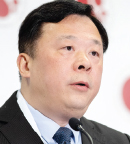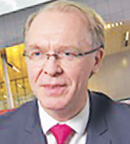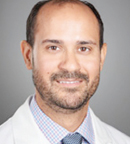In patients with relapsed or refractory multiple myeloma, two novel dual-target chimeric antigen receptor (CAR) T-cell strategies are yielding early and durable responses, with seemingly less cytokine-release syndrome and neurotoxicity than first-generation CAR T-cell products, according to the results of phase Ib/II studies presented at the 2019 American Society of Hematology (ASH) Annual Meeting & Exposition.
“In the CARTITUDE-1 study, every single patient responded to JNJ-4528, and every single patient had a reduction in paraprotein,” said Deepu Madduri, MD, of The Tisch Cancer Institute at Mount Sinai in New York.1 In addition, 100% of patients evaluable for minimal residual disease (MRD) were MRD-negative, and 27 of 29 heavily pretreated patients remained free of disease progression at a median of 6 months’ follow-up. “Considering these patients have all received multiple prior therapies, these results are extremely encouraging,” she said.

In the CARTITUDE-1 study, every single patient responded to JNJ-4528, and every single patient had a reduction in paraprotein.— Deepu Madduri, MD
Tweet this quote
JNJ-4528 is genetically engineered to contain a 4-1BB co-stimulatory domain and two proteins that attach to B-cell maturation antigen (BCMA) to confer avidity. It is identical to the CAR T-cell construct LCAR-B38M, which was evaluated in the Chinese -LEGEND-2 study, an updated analysis of which was also presented at the ASH meeting.2 Based on the CARTITUDE-1 results, JNJ-4528 recently received a Breakthrough Therapy designation from the U.S. Food and Drug Administration for the treatment of patients with relapsed or refractory multiple myeloma.
Another product described at an ASH press briefing was the bivalent BM38 CAR T-cell therapy.3 This product, developed in China, incorporates anti-CD38 and anti-BCMA single-chain variable fragments in tandem plus 4-1BB signaling and CD3 zeta domains.
In both studies, most patients achieved MRD negativity, demonstrating less than 1 myeloma cell per 100,000 cells in the bone marrow. MRD negativity has consistently been associated with a greatly reduced risk of relapse.
JNJ-4528 CAR T-Cell Therapy
The primary aim of the phase Ib portion of CARTITUDE-1, as reported at ASH, was to assess the safety of JNJ-4528 and to confirm the phase II dose derived from the previous LEGEND-2 trial of the identical construct, LCAR-B38M. Dr. Madduri reported results for the first 29 patients. Each patient underwent lymphodepletion and received a single infusion of JNJ-4528 at a targeted dose of 0.75 × 106 CAR-positive viable T cells/kg; this is different from most other CAR therapies, which are given as a flat dose, she noted.
The median number of prior lines of therapy was 5, ranging from 3 to 18, and the population as a whole was “quite refractory,” she noted. For prior treatment, 86% had undergone autologous transplant; 100% were triple-exposed, with 86% refractory to three standard treatments; and 72% were penta-exposed, with 31% refractory to five agents (bortezomib, lenalidomide, carfilzomib, pomalidomide, daratumumab).
At a median follow-up of 6 months, 100% of patients responded, with 69% having complete responses. Commenting on a waterfall plot that demonstrated reductions in tumor burden, Dr. Madduri said, “In myeloma, we don’t often see waterfall plots like this…. And the response rate and depth of response were independent of BCMA expression on the myeloma cells at baseline.”
Among the key outcomes with JNJ-4528 were the following findings:
- Objective response rate = 100%
- Complete response rate or better = 69%
- Stringent complete response rate = 66%
- Very good partial response or better = 86%
- Median time to complete response or better = 1 month
- 100% MRD negativity in all evaluable for MRD at 10-6
- 27 of 29 patients were free of disease progression at median of 6 months’ follow-up
- T-cell expansion = 100%, with median time to peak expansion = 13 days after infusion.
Importantly, she continued, JNJ-4528 “is unique” in demonstrating a preferential expansion of the CD8-positive central memory phenotype at the peak of expansion, which could potentially enhance the T cells’ persistence. “CD8-positive cells kill myeloma, but essential memory cells have a way of not getting exhausted so often and show sustained effector function,” she said.
We are learning that every CAR T-cell therapy is different and that we can’t compare them.— Deepu Madduri, MD
Tweet this quote
Whether this predominance of central memory cells will translate into longer remissions (as compared to first-generation products) cannot yet be determined with the short follow-up. However, longer follow-up from LEGEND-2 (with the identical product, though in less heavily pretreated patients) suggests it could. In comparison, recent updated data from the phase II KarMMa study of the first-generation anti-BCMA product idecabtagene vicleucel (bb2121) showed median progression-free survival to be 8.6 months for the cohort receiving 150 to 450 × 106 CAR-positive T cells and 11.3 months with 450 × 106 cells.4
“We are learning that every CAR T-cell therapy is different and that we can’t compare them,” Dr. Madduri cautioned.
LEGEND-2 Update
Also at ASH, LEGEND-2 investigators reported long-term follow-up of treatment with LCAR-B38M for 57 patients treated at the Xi’an, China, site and 17 patients treated at three other sites.2 Patients had received a median of three prior lines of therapy; 60% had received a proteasome inhibitor and an immunomodulatory drug. The updated results were derived at a median follow-up of 25 months.
High response rates and deep responses were achieved with low [LCAR-B38M] CAR-positive T-cell doses.— Bai-Yan Wang, MD, PhD
Tweet this quote
According to Bai-Yan Wang, MD, PhD, of the Second Affiliated Hospital of Xi’an Jiaotong University, “Median overall survival was 36 months but has not yet been reached in patients achieving a complete response.”
The key outcomes included the following data:
- Overall response rate = 88%
- Complete response rate = 74%
- Very good partial response rate = 4%
- Median duration of response = 27 months overall and 29 months for complete responders
- Median progression-free survival = 20 months overall and 28 months for complete responders
- Median overall survival = 36 months and not reached in complete responders; 30-month survival = 60% overall and 75% in complete responders at 30 months
- Median survival for patients not achieving a complete response = 7.5 months, with 20% alive at 18 months.
“High response rates and deep responses were achieved with low CAR-positive T-cell doses (median = 0.5 × 106 cells/kg),” Dr. Wang noted. The longest progression-free survival was observed in a patient treated after five prior lines of therapy, who had extensive extramedullary disease. The patient is disease-free and off all treatments. For the 17 patients treated at other sites, who were followed for a median of 26 months, median progression-free survival was 18 months and median overall survival was not reached.4
A phase II confirmatory study, CARTIFAN-1, has been initiated in China. Three studies are ongoing in the United States with JNJ-4528, including the phase Ib/II CARTITUDE-1 study, the phase II multicohort CARTITUDE-2 study (evaluating different populations of patients with myeloma), and the phase III CARTITUDE-4 study (evaluating standard treatments vs JNJ-4528 in patients who had received one to three prior lines of therapy and who are refractory to lenalidomide).
BM38: Anti-BCMA/CD38 Dual-Targeted Therapy
CAR T-cell therapy targeting both BCMA and CD38 induced responses in 91% of heavily pretreated patients, 41% of whom had extramedullary disease, other Chinese investigators reported.
“We aimed to design a bispecific CAR T to target antigen loss and increase effector cell persistence. This is the first clinical trial of anti-BCMA and CD38 dual-targeted CAR T-cell therapy in refractory multiple myeloma. Our study demonstrates improved efficacy and manageable safety,” said Yu Hu, MD, PhD, of Union Hospital at Huazhong University of Science and Technology in Wuhan, China, at a press briefing.

Yu Hu, MD, PhD
The dose-escalation study included 22 patients with relapsed or refractory myeloma previously treated with at least three therapies. Nine patients (41%) had extramedullary tumors, and 73% had cytogenetic abnormalities. After lymphodepletion, patients were infused with CAR T cells at 0.5 × 106/kg to 4.0 × 106/kg, with at least two patients treated at every dose level.
Of the 22 patients, 20 (90.9%) responded, including 12 stringent complete responses. At data cutoff (October 31, 2019), 19 patients remained alive, with 10 still in stringent complete response. Of 9 patients with extramedullary disease, 8 achieved a complete or partial response. A total of 18 patients (81.8%) became MRD-negative. The median progression-free survival had not been reached, with 78.9% of patients still progression-free at 9 months, Dr. Hu reported.
The peak time of CAR T-cell expansion was between days 7 and 15 for patients achieving a stringent complete response, but it was later for patients who did not achieve this response. The longest duration of CAR T cells in the peripheral blood exceeded 450 days.
“With this dual-targeted CAR T-cell therapy, we have demonstrated a high response rate—especially a higher rate and longer duration of stringent complete response compared with other therapies—as well as effective elimination of extramedullary lesions, with no serious neurologic adverse effects and manageable levels of other adverse effects,” Dr. Hu said.
Phase II clinical trials are planned in both China and the United States.
Dual Targeting May Be Better Tolerated
Studies of dual-targeted CAR T-cell constructs hint at the potential for a lower risk of severe cytokine-release syndrome and neurotoxicity. For example, in CARTITUDE, 93% of patients experienced cytokine-release syndrome; for two patients (7%), cytokine-release syndrome was ≥ grade 3, although one patient experienced progression to grade 4 and died. Three patients (10%) developed neurotoxicity; one case was grade 3 and resolved.
Aligning with the slower expansion of T cells with JNJ-4528, as compared to first-generation products, Dr. Madduri noted that the onset of cytokine-release syndrome was also later, occurring around 7 days postinfusion (> 90% between days 5 and 9). As expected, most adverse events were hematologic, with the majority of patients experiencing grade 3 or higher hematologic toxicity. Nonhematologic toxicity was rare, she reported.
NEXT-GENERATION CAR T CELLS IN MYELOMA
- Results are emerging for next-generation CAR T-cell products in the treatment of relapsed/refractory myeloma.
- JNJ-4528 (LCAR-B38M) is genetically engineered to contain a 4-1BB co-stimulatory domain and two proteins that attach to BCMA.
- In the phase Ib CARTITUDE-1 trial, 100% of patients responded, with 69% being complete responses; all patients evaluable for MRD status were MRD-negative.
- In a long-term follow-up of LEGEND-2, median progression-free survival was 20 months; median overall survival was 36 months but was not reached for complete responders.
- A product developed in China, BM38, incorporates anti-CD38 and anti-BCMA single-chain variable fragments in tandem plus 4-1BB signaling and CD3 zeta domains.
In the 57-patient LEGEND-2 cohort receiving LCAR-B38M, cytokine-release syndrome also was observed in 90% of patients, with 7% being grade 3. The median time to onset was 9 days. One patient developed neurotoxicity (grade 1).
In the Chinese study of the anti-BCMA/anti-CD38 construct BM38, cytokine-release syndrome was observed in 91% of patients, mostly mild. Grade ≥ 3 cases of this reaction occurred in five patients (22.7%), and six patients overall required treatment. No neurotoxicity was observed. Hepatotoxicity was seen in three patients (13.6%), and one patient experienced nephrotoxicity, Dr. Hu reported. ■
DISCLOSURE: CARTITUDE was supported by Janssen. The BM38 study was supported by Cellyan Therapeutics. Dr. Madduri has been a consultant for AbbVie, Foundation Medicine, Celgene, Janssen, and Takeda. Drs. Wang and Hu reported no conflicts of interest.
REFERENCES
1. Madduri D, Usmani SZ, Jagannath S, et al: Results from CARTITUDE-1: A phase Ib/II study of JNJ-4528, a CAR-T cell therapy directed against B-cell maturation antigen (BCMA) in patients with relapsed and/or refractory multiple myeloma. 2019 ASH Annual Meeting & Exposition. Abstract 577. Presented December 9, 2019.
2. Wang B-Y, Zhao W-H, Liu J, et al: Long-term follow-up of a phase I, first-in-human open-label study of LCAR-B38M, a structurally differentiated chimeric antigen receptor T-cell therapy targeting B-cell maturation antigen, in patients with relapsed/refractory multiple myeloma. 2019 ASH Annual Meeting & Exposition. Abstract 579. Presented December 9, 2019.
3. Mei H, Hu Y, Li C, et al: A bispecific CAR T-cell therapy targeting BCMA and CD38 for relapsed/refractory multiple myeloma: Updated results from a phase I dose-climbing trial. 2019 ASH Annual Meeting & Exposition. Abstract 930. Presented December 9, 2019.
4. BluebirdBio: Bristol-Myers Squibb and BluebirdBio announce positive top-line results from the pivotal phase II KarMMa study of Ide-cel in relapsed and refractory multiple myeloma. Available at http://investor.bluebirdbio.com/news-releases/news-release-details/bristol-myers-squibb-and-bluebird-bio-announce-positive-top-line. Accessed December 10, 2019.



